Description: War Thunder is a next generation military MMO game dedicated to...


The psychological state of a person called déjà vu do today remains mysterious. This phenomenon is of interest to official medicine, psychology, science and various esoteric movements. All of them put forward their versions and statements about what this unusual feeling is and why it appears. deja vu effect.
Each of us has heard about this phenomenon, and most people have experienced it at least once in their lives. Events that take place in reality this moment, evoke the feeling that all this is very familiar and has already happened in life. However, as a rule, a person cannot remember the specific details of what is happening, but only vague feelings remain with a short duration, literally a few seconds. A person barely has time to realize what is happening to him, as this feeling immediately disappears. This is what is called the deja vu effect.
In addition, researchers have found in their studies that highly educated women and men are more likely to experience Deja Vus than less educated ones. Similarly, the paradoxical feeling of familiarity is more likely to occur when a person travels a lot, has an irregular rhythm of work or mood, is tired or stressed.
This phenomenon does not explain. Brown has been in intensive communication with Deja Vus over several years and has summarized the three most important explanatory approaches. They are associated with perception, memory and brain functions. A typical situation: visit a new place during your holiday. The moment you enter the market, your mobile phone rings and some cars pass you. Only after you finish the phone call and the street is clear, you will see a large church next to the market square - and you will feel like you have already been here.
"Already seen" - this is how this term is translated from French. It was first used by the psychologist Émile Bouarac (1851-1917) in his book The Psychology of the Future. It is rather difficult to study this effect, since it relates exclusively to human feelings. It is extremely difficult and unsafe to conduct experiments in this area, because some interventions can deprive a person of hearing, vision, or even make him paralyzed. In addition, this feeling is not controlled, and it can be artificially evoked only under hypnosis. Therefore, an unambiguous answer to the question of why feeling of deja vu remains unresolved to this day. However, experts identify a number of reasons why a person may experience a mysterious feeling.
Explanation: Deja vu can occur when a situation is not initially consciously realized. The reasons for this may be, for example, or poor concentration. In this example, the church was not consciously perceived to be near the market because the person's concentration was disturbed by the bell. mobile phone and moving vehicles. The second, the immediate, happens consciously and may seem curiously familiar because she has already experienced it before the unconscious.
Typical situation: invites you to a garden party in the summer. There is a white fountain in the center of the garden. Next to it there is a round barbecue and a long covered table with an unusual flower vase and a bright bouquet. The whole landscape is very familiar to you, even though you are entering this garden for the first time.
It is worth noting that at the moment, none of the versions considered by scientists, why deja vu occurs, has not been officially recognized. This elusive phenomenon, which is difficult to study, is being studied to this day.
Explanation: Researchers distinguish between three different versions of memory theory. Or Deja vu may arise due to the fact that the invited person simply forgot that he had already seen the garden once. For example, the owner may have shown him weeks before the photo shows the same items in the same environment. A third explanation would be that the invited person had previously seen what looked like a garden.
For example, he may have been in a park with a fountain in the middle and a long bench with a round wastebasket. Neurologists suggest that information from environment moves along different paths in the right and left hemispheres of the brain and merges into a single impression. The phenomenon of Deja-vu is explained by a possible delay in the transmission of information about neural connections.
Sometimes there is a feeling that the events have already happened. A person hears the same sounds, inhales smells, anticipates what the interlocutor will say. Consciousness throws up pictures of what is happening, but does not answer the question of when such an event occurred. The phenomenon is called deja vu and occurs during the life of 97% of the population. Of particular surprise are situations when, at the sight of stranger and when visiting a new location, we can describe in detail the features or setting. It gets creepy and a little awkward. Do not even try to remember when there were familiar events, it is impossible. What is deja vu and why does it occur?
Some may also be aware of the following situation: it is often said that the word "table" is in front of you and at some point asks the question about the meaning of the word or sound. Or the vase you bought and sees every day suddenly seems completely strange and out of place. Perhaps it was a Jamaican wu.
It describes the feeling that you suddenly don't know what you really know. If you focus strongly on something, it may happen that confidant suddenly seems strange to you, says Wolfradt. In psychology, in this momentary alienation from the environment, researchers also speak of derealization.
The state experienced by a person is comparable to watching a movie or reading a book that you have been reading or watching for a long time. Separate pictures and motives arise in the head, but the memory does not show how further events will develop. When the situation develops, the person is surprised to understand that this is exactly how everything should have happened. There remains a strange feeling, an understanding that you knew the sequence of the development of the situation.
However, according to Wolfradt, this phenomenon will occur even less frequently than Dejava. Anyone who has experienced Dejava should not worry about their health, says psychologist Wolfradt. The Deja-Vu experience is completely normal, and only in very few cases do the phenomena occur in connection with a neuropsychological disorder, such as a special form of illness.
A strange memory disorder causes people to believe they are trapped in an eternal loop of repetition - a unique opportunity for researchers to unravel the pitfalls of memory. He leaves the house and the bird perches on the tree. The bird sits on one branch. And he definitely tells you this song.
Deja vu: what is it? An amazing phenomenon that scientists are still struggling with. The complexity of research lies in the fact that it is impossible to predict the occurrence of deja vu. Consequently, it is not possible to prepare a person for study and observation. Cases of repeated deja vu several times a week have been recorded in people suffering from epilepsy.
Everything is like yesterday, yesterday and every day. A few years ago, his doctor referred him to the University of Bath Memorial Hospital. He was just there, he replied. By chance, Chris Moulin, a psychologist at the University of Leeds, found out about the man. Even Moulin wouldn't have thought it was. In the meantime, however, he collected about 20 such cases in his card: all the people who cannot be surprised on earth.
Moulin realized that he was faced with a memory disorder, which is still little understood. The victims are usually the elderly. They perceive the present as something long ago, which they remember at this very moment. At the store, they put the milk back on the shelf because they were sure they had already bought the previous day. In a lending library, they cannot take a book into their own hands without knowing it for a long time. The TV set will refuse sooner or later - there are only repetitions. The woman looks at foreigners, unsuspectingly with kisses, because they seem to her old acquaintances.
Thanks to Émile Bouarac, there is a term for this unusual phenomenon. The psychologist called deja vu phenomenon. Readers found a new designation in the works of the scientist "Psychology of the Future". Previously, the phenomenon was characterized by the same signs, but was called false recognition or paramnesia. The latter term meant disturbed consciousness and deceptions of memory.
The feeling is not entirely foreign ordinary people. For a moment, he can touch everyone. The scene suddenly suddenly seems unfamiliar. It could be three dogs on a holiday beach fighting over a green ball, or a cop at an intersection scratching his leg. There is something unsettling about this experience. Because memory from nothing is often represented with almost photographic clarity. Everything seems to fit together perfectly,” says Moulin. "But consciousness knows that this is impossible." However, sometimes the feeling of memory is a long eyelash that is so overpowering that it is real.
Exists reverse phenomenon, which was given the French designation - Jamevu. Such a phenomenon is rare, unlike deja vu. Accompanied by severe memory loss. A person does not recognize close or familiar people, he perceives familiar things as new. Jamevu arises unexpectedly, for example, during a conversation with a friend. At one point, all data is erased from memory. The repetition of jamevu indicates the presence of mental disorders.
How the slight disgust disappears. It is almost as if he has already lived. It is quite possible that faith in rebirth and clairvoyance arise from such a strange experience. Even sober minds can fall into ghostly ideas after Deja Vu. Wasn't the scene so familiar somehow? Seems like the premonition hasn't been confirmed retrospectively? Or is there a look at an earlier life?
What is new is that the momentary confusion of the brain in some people seems to persist in a permanent state. To them, Deja-vu is no longer puzzled, but normal. They strongly believe that, for example, they have known for a long time that the TV news is on and predicted the results of the last elections. Thus, Moulin speaks of dejava already experienced.
Researchers have not learned to cause the phenomenon artificially. Therefore, take the facts below as a theory based on a survey of people who have experienced deja vu. What does this phenomenon mean according to scientists?

Those concerned are by no means foolish, despite their sometimes high age. Even their memory, apart from the disturbance itself, is pretty much in order. When Moulin was able to locate the brains of his patients, there was an excessive cellular breakdown in the temporal lobes, which can be seen in the epileptic manifestations. In fact, epileptic seizures occurring in this region are often preceded by several minutes of deja vu.
Moulin now wants to explore how the excitement happens. Science suggests to people who live chronically in memories, perhaps in that they did not exist until now. Normal Deja-vu is very rare, and almost never occurs when the explorer is present.
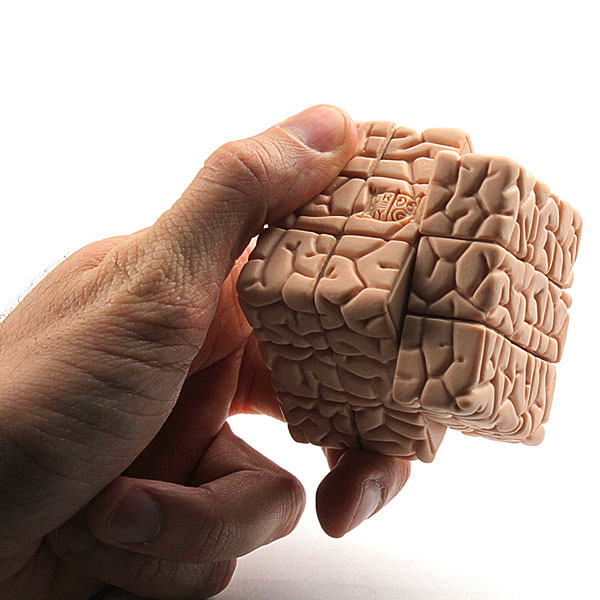
Psychologist Sigmund Freud did not bypass the topic of deja vu. The Australian is sure that the phenomenon arises due to human consciousness. It throws up subconscious pictures and fantasizes. The hypothesis was picked up by the followers of Freud and brought to the theory of the struggle between "I" and "It".
In addition, the psychologist hopes to find the main question of the study of memory: how can the brain distinguish between memory and imagination in general? Memory, in itself a miracle of the faculty, turns out to be quite often in Everyday life as error prone. Memories can be false if he has few doubts. It is not uncommon for witnesses to sincerely invite the court to see the accused at the scene, and yet the statement turns out to be incorrect.
Brain researchers suspect that its store's memory organ is used in two ways: when it retrieves only factual knowledge, it is a relatively simple process in which the brain uses previously stored information. However, as soon as a person deduces an episode from his past, a real theater of imagination begins in his head. The experience is recalled again, partly from real memory, partly from imagination. The person again plays the situation through the stage of his imagination.
There are various hypotheses put forward by scientists from all over the world. Interestingly, not only psychologists, but also physicists joined the study of the phenomenon. The latter are sure that deja vu man feels due to a glitch in time. In ordinary life, human consciousness perceives only what is happening at the present moment. During a crash, the times start at the same time. Therefore, a person gets the impression that events are repeating themselves.
But how does the brain know that this is not only a scene of a storm, but also fiction? It is obvious that he is flooded with a special feeling, a kind of memory, unmistakable and typical, like a characteristic melody, every time he invites you to him. In obtaining factual knowledge, emotional identification remains unchanged, but also with pure fantasy. "This feeling," says Moulin, "perhaps it is that the mind must hold real memory and fiction."
The distinction is not easy, because the head does almost the same thing in both cases: it forms representations. It is no coincidence that memory is so easily misled. Moulin and his Leeds colleagues suspect that the sensation of memory arises from a second circuit in the temporal lobes that is independent of memory. If this schema is always on its own, the feeling of being able to draw from the past can be added to every perception.
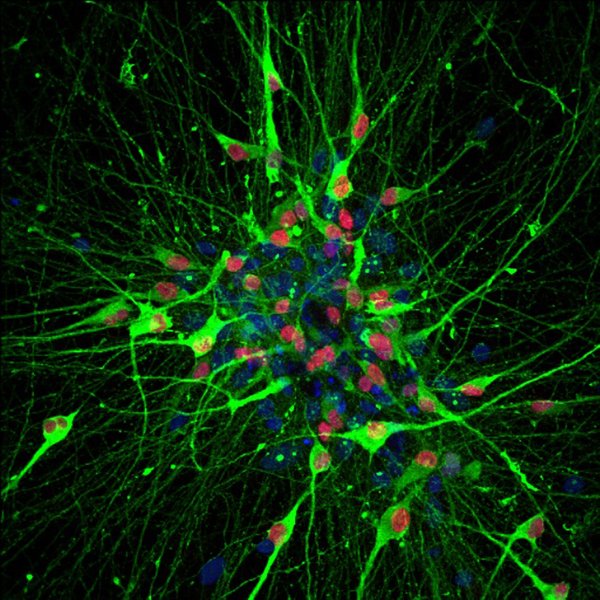
Why does deja vu occur?

Psychologists note that similar situations happen to a person every day. As a result, a reaction to events is formed, experience is accumulated. When similar situations arise, a person uses the developments of the past. There is a sense of recognition of the events taking place.
The disruption, however, is selective, much to the surprise of the researchers. They recently found that in patients with chronic déjà-u-lid, the feeling of remembrance only occurs when something new happens. A film that they have never seen in reality, they cannot stand because they seem familiar every second. On the other hand, a film that after a few rehearsals actually knows half unforgettably, they also love to look at each other again. I don't know exactly what's going on, said the old lady.
The mystery and mystery of the phenomenon does not let scientists go. Research continues on an interesting feeling. In the state of Colorado, scientists conducted a series of experiments. One of them was that a group of people were shown images in turn famous places and people. First photos of celebrities, then personalities from different areas, pictures depicting historical monuments and attractions.
But when an old friend died, he didn't go to the funeral. He thought he was annoyed: "People will be buried several times," he asked himself. In a life that goes round in circles, small annoyances become nightmares. Every morning he wakes up, more and more. Remaining in the same province and on the same day start again.
According to Moulin, a Japanese man did it in Paris. For the first time, he went on a trip to his city of dreams. In the end, however, he was bitterly disappointed because he found nothing new in the city - every day a groundhog. "In familiar Tokyo," says Moulin, "his memory disorder hasn't caught his attention yet."
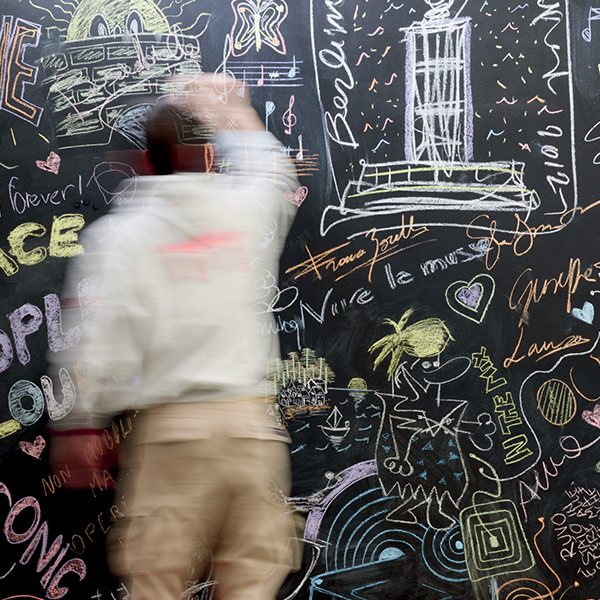
During the demonstration of photographs, scientists asked those present to describe the image: who or what is on the card. While the subjects thought, the respondents recorded the activity of the brain. Despite the presence of the correct answer, the temporal part of the brain became more active. Modern research deja vu showed that when a person does not know the answer, he pulls up associations. They form the feeling of repeating situations.
Curiosity about old and new can also lead to therapy. This can help the patient learn new things in time, says Moulin. The Australian brought him this idea. Before going on a tour with his father, he carefully prepares the old man for everything that awaits him, so as not to spoil his joy.
The usual déjà vu experience is also found in unusual settings - not in the case of beds, but not in office work. Likewise, travelers are more likely to be attacked than nest chairs, more liberal more often than conservatives, and younger than old ones. Fatigue is also helpful.
Despite the variety of theories, scientists have come to a consensus on which parts of the brain are involved in the occurrence of deja vu. The future is protected by the frontal part, the intermediate zone is responsible for the present, and the past is given to the temporal region. In the normal operation of all parts, nothing phenomenal happens. But, if a person is worried about upcoming events, makes various plans, then deja vu may occur. due to physiological reasons.
When conducting a conversation, a person reacts to the face of the interlocutor. Depending on facial expressions, a reaction occurs, the brain sends a signal. Physiologists argue that the present time is so short that people only have time to remember events, but do not experience them. Some situations fall under short-term memory, which stores memories for no more than 5 minutes, while others fall under long-term memory.
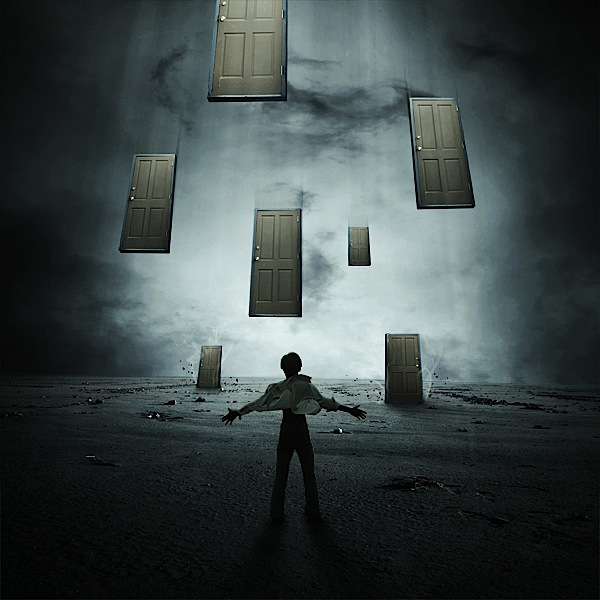
There are no clear boundaries between past, future and present. When in a certain situation there are similarities between short and long-term memory, then the present is perceived by a person as the past. A physiological phenomenon leads to the appearance of deja vu.
The phenomenon is not dangerous and does not require the attention of a doctor. Deja vu must be distinguished from false memory. AT last case there is a malfunction in the brain. Unfamiliar events, people perceive as known facts. False memory turns on at certain periods:
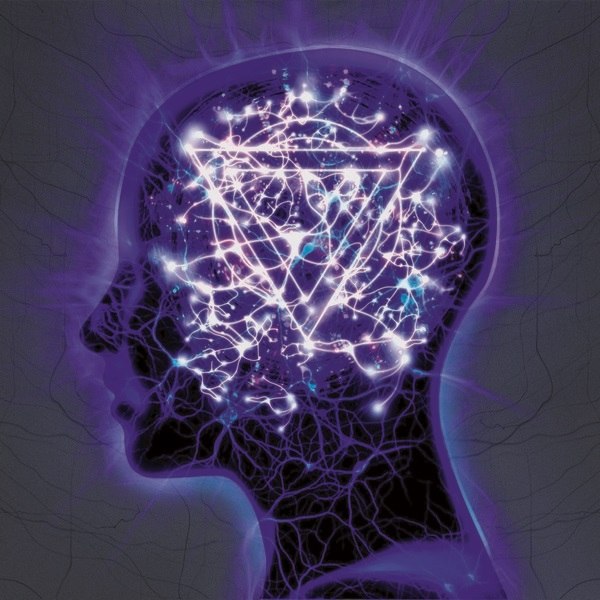
Is deja vu bad or not? With infrequent manifestation of deja vu won't bring trouble. Recurring episodes are a symptom of disease. Among them are schizophrenia, temporal lobar epilepsy. In such a situation, deja vu is bad. Check with your doctor for next steps.
Deja vu remains a mysterious phenomenon that scientists around the world are struggling to study. It is still unknown why a small percentage of people never experience this phenomenon. Plus, the cause of what is happening is associated with the brain. Interventions in an important organ are fraught with serious consequences: disability, deafness, paralysis. Therefore, conjectures and theories are built solely on the sensations and feelings of the subject.